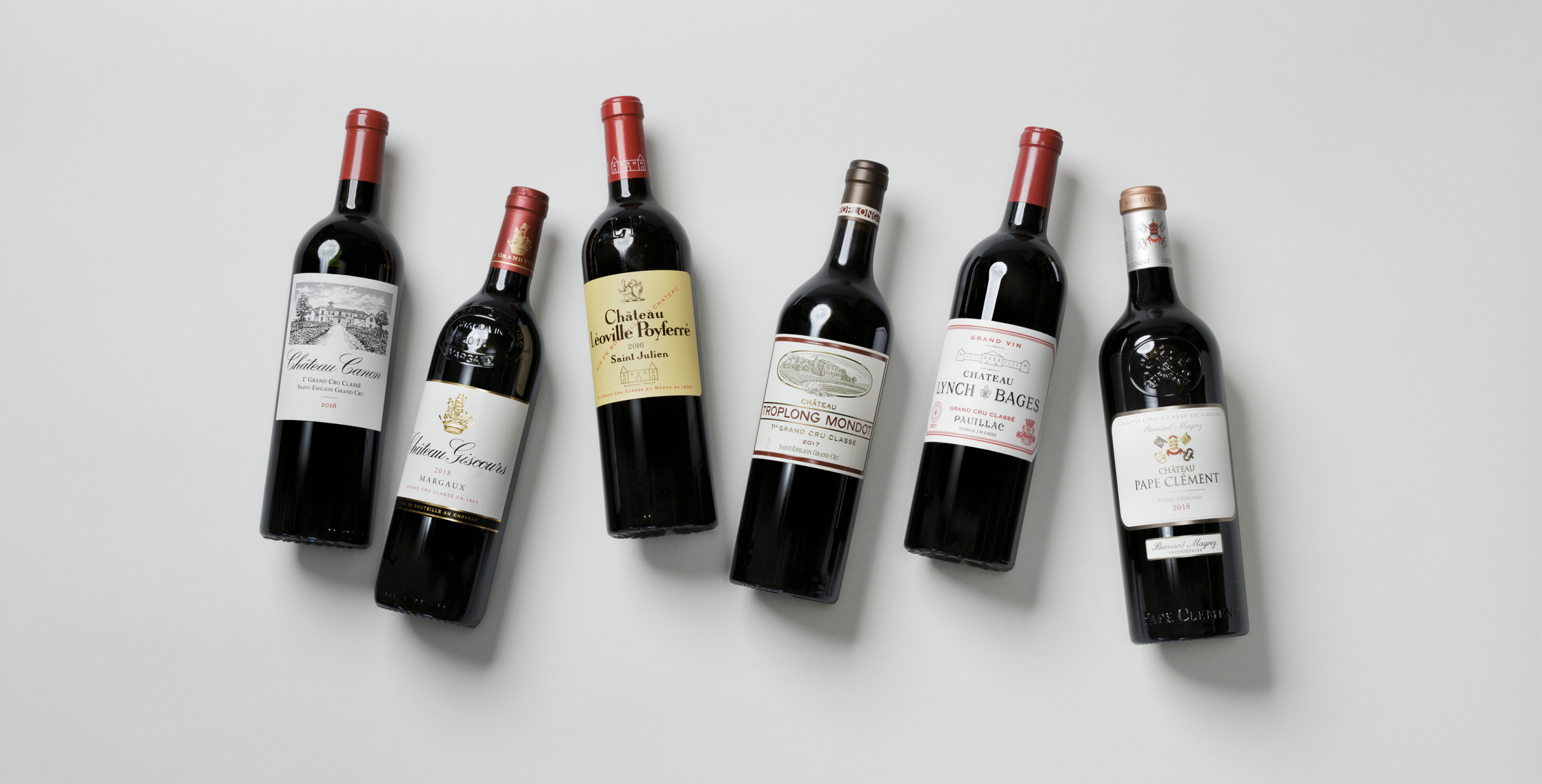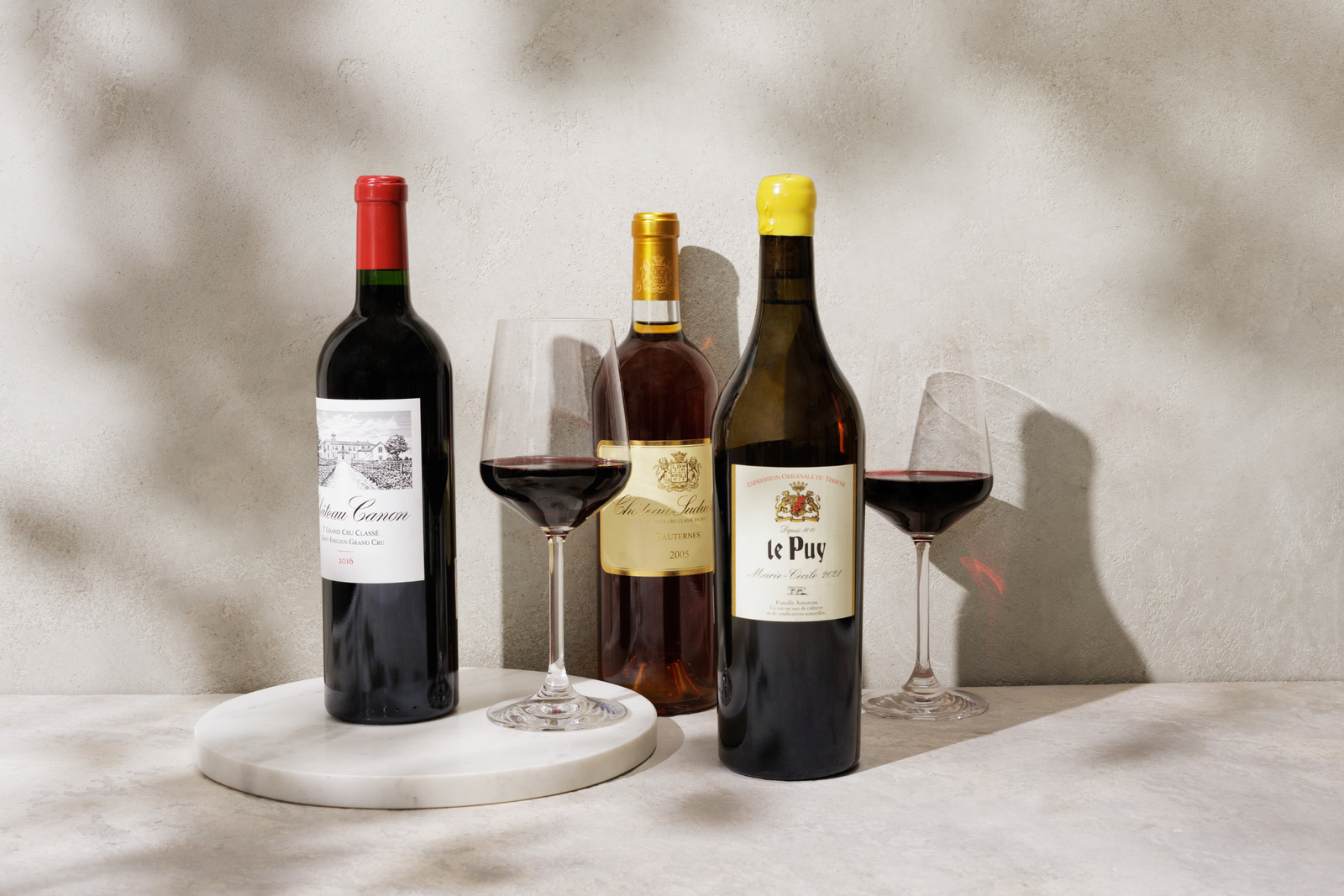
Bordeaux Futures
The Beginner’s Guide to Wine Futures
Are you curious about investing in wine futures? Read our beginners guide to learn how you can make the best of this opportunity.
In a world where exclusivity and anticipation define the most cherished experiences, the realm of wine futures presents a unique avenue for enthusiasts and collectors to purchase rare and limited-edition wines before they are bottled. This system provides vital funding for winemakers to continue their craft and a path for wine lovers to become integral parts of a wine's journey from its early stages.
As we delve into the nuances of wine futures—from understanding the benefits and risks to navigating the market—this guide aims to illuminate the path for beginners exploring this exciting aspect of wine culture.
What Are Wine Futures?
The wine futures system is used by wine lovers and collectors to access rare or limited-edition wines. The system, also called ‘en primeur,’ relies on buying wines before they are bottled. By allowing customers to purchase wine futures, winemakers can get funding to continue their work and build a loyal customer base.
How Can You Purchase Wine Futures?
You can purchase wine futures like you purchase normal wine—directly from a winemaker, vineyard, or wine retailer. The difference between those purchases is that normal wines are immediately available—but wine futures won’t be available for 18 to 24 months.
Brief History of Wine Futures
As we know it today, the wine futures system started around 60 years ago with Bordeaux wine. After World War II, winemakers found themselves in a time of business and financial difficulty, so merchants offered to buy their wines in advance. This meant merchants could set their own prices. This benefited them by purchasing the wine at lower costs and selling higher, and in turn, winemakers could have access to capital to continue to finance their vineyards.
Why Buy Wine Futures?
You may wonder why you can’t just wait until the wine is bottled and released to the market to buy it. If you’re aware of it in sales as a wine future, you can track its progress and buy it on shelves. While this is true in some cases, it may not be possible for all wines. If the wine is rare or limited-edition, it may sell out while en primeur. Then, you will only be able to get it by buying from a private collector or individual, and the prices will be a lot higher. Even if the wine does remain available from the original source, demand may push the price upwards by the time the wine is available in bottle.
There’s also the excitement and anticipation of being a part of the wine’s journey from barrel to bottle—by buying wine futures, you’re part of the wine’s story and history.
Are Wine Futures Worth It?
Wine futures are an investment, and like most investments, there’s a certain amount of risk involved. The inherently speculative nature of wine futures means that you have to deal with the market fluctuations that will occur during the up to 24-month period while you wait for your wine purchase.
For wines with a large variation between vintages, you may also have less ability to predict what they will taste or pair well with. While the wines are tasted and priced by expert tasters, their notes are still based on an early version of the wine that hasn’t been aged in the barrel for very long. There’s a possibility of change over the waiting period, during which you must be patient.

How to Start Investing in Wine Futures
Research is important when considering investing in wine futures.
1. To start, you want to choose a reputable wine seller who you can trust to give you the right information about the wine and a fair price.
2. Next, you want to understand the importance of vintage reports and professional ratings when you’re choosing what wines to invest in. Vintage reports provide information on past vintages, the best wines, and what weather affected the harvest. This can help you determine what a wine may taste like.
3. Consider your storage and insurance options for your wine futures. Keep in mind that these are rarely sold in single bottles and more often in a case of six or twelve.
a. With products like wine, there’s always a chance of a bottle being broken in transit, so it’s important to have insurance in case that happens.
b. It’s also important to have a suitable place in your house or a wine fridge to store your wine, or to have professional dedicated ‘off site’ storage, as there’s a chance that improperly stored wine will lose the taste you were looking for when you bought it.
Tips for Success in the Wine Futures Market
This will tell you what the trends are to help inform your decision-making and can make you aware of reputable and reliable winemakers.
- Not only will you meet more people who share your passion and interest in wine, but their insights and recommendations can be vital at the beginning of your wine futures journey.
If you know you only drink white wine, you don’t have to invest in red just because everyone else is. Focus on what you like, and you can’t go wrong.
Starting Your Journey
Whether you're driven by the thrill of participating in a wine's journey from barrel to bottle or motivated by the prospects of acquiring rare editions before they reach the public market, the adventure of wine futures is inviting.
Gordon's Fine Wines stands ready to guide you through this captivating process, offering expert advice, comprehensive vintage reports, and a curated selection of wine futures. Explore our selection of wine futures today and begin your journey.

